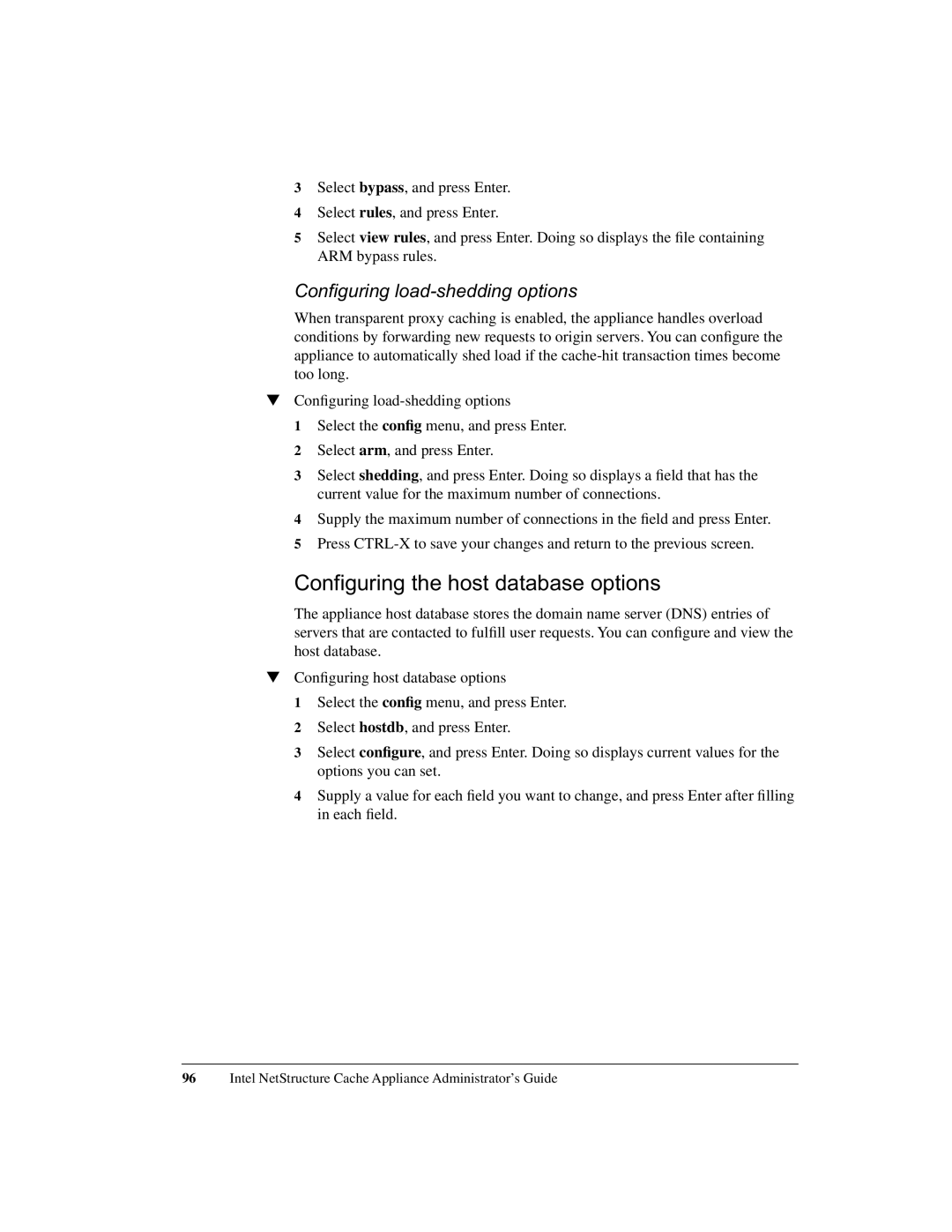3Select bypass, and press Enter.
4Select rules, and press Enter.
5Select view rules, and press Enter. Doing so displays the file containing ARM bypass rules.
Configuring load-shedding options
When transparent proxy caching is enabled, the appliance handles overload conditions by forwarding new requests to origin servers. You can configure the appliance to automatically shed load if the
▼Configuring
1 Select the config menu, and press Enter.
2 Select arm, and press Enter.
3 Select shedding, and press Enter. Doing so displays a field that has the current value for the maximum number of connections.
4 Supply the maximum number of connections in the field and press Enter. 5 Press
Configuring the host database options
The appliance host database stores the domain name server (DNS) entries of servers that are contacted to fulfill user requests. You can configure and view the host database.
▼Configuring host database options
1 Select the config menu, and press Enter.
2 Select hostdb, and press Enter.
3 Select configure, and press Enter. Doing so displays current values for the options you can set.
4 Supply a value for each field you want to change, and press Enter after filling in each field.
96Intel NetStructure Cache Appliance Administrator’s Guide
